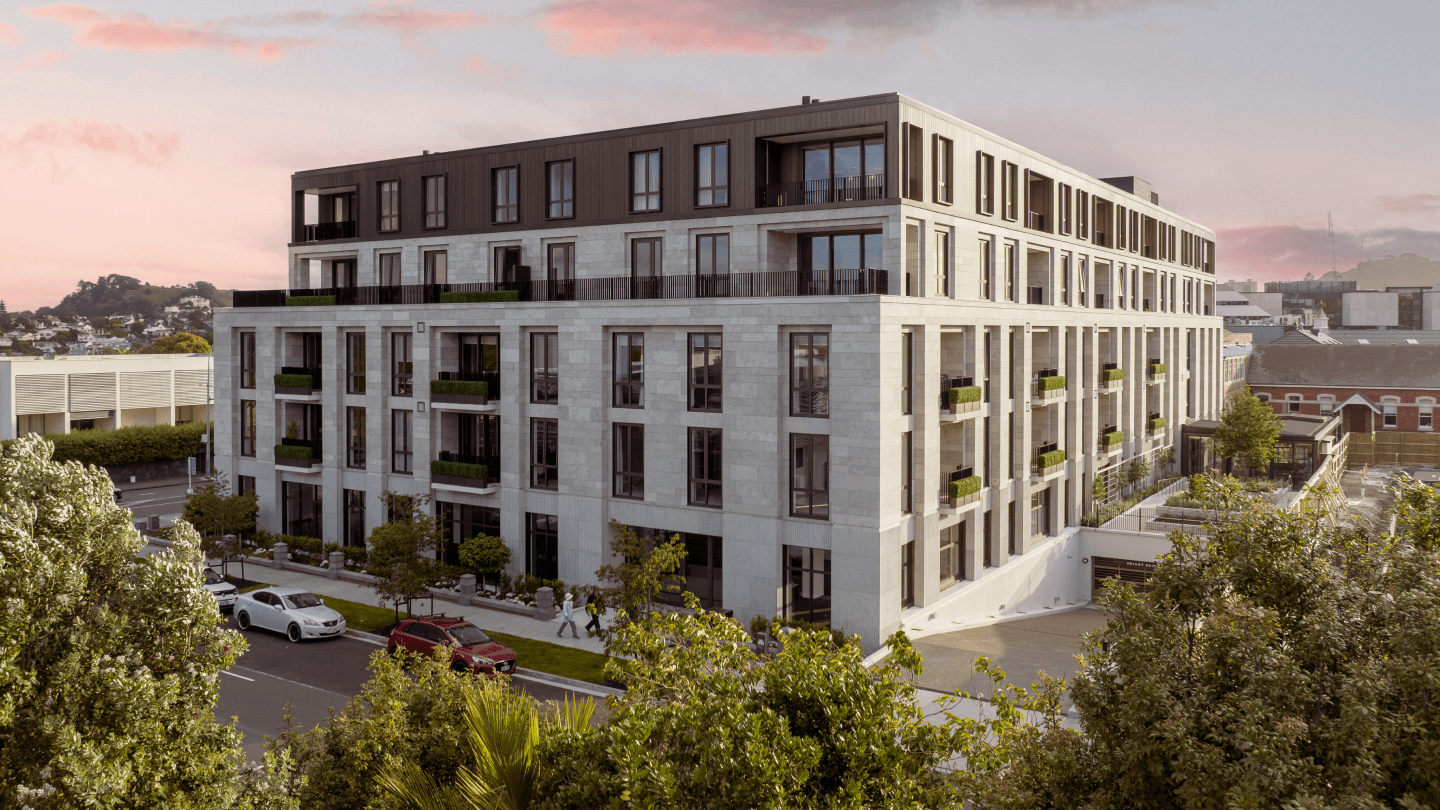
Collaborative Innovation
General News
15th Apr 2025
In New Zealand, the construction and demolition sector accounts for approximately 50% of the country’s landfill waste. This not only creates significant financial costs for businesses but also leads to a major environmental impact. Tackling this issue requires careful planning, effective waste management practices, and education. When coupled with innovative solutions, these efforts can yield impressive results.
Generus Living is committed to environmental best practices in all its development projects across New Zealand.
"Our vision is to be a leader in the creation of premium retirement villages and aged care facilities. One could say we have a bit of an obsession with quality, and our no-compromise approach allows us to form partnerships with like-minded organisations."
— Richard Mora, General Manager of Development & Construction at Generus Living
For every new project, Generus Living assembles a bespoke team, carefully selecting partners who share their commitment to excellence. This collaborative approach often brings forward innovative ideas and solutions from contractors and partners.
"We’re excited to see sustainability and waste reduction becoming more common in the construction industry," says Mora. "When we were introduced to the Mutu digital platform and saw the impressive results achieved by our key partners in such a short period, it was clear that innovation could be a game-changer in the construction waste challenge."
Power in the Knowledge
Kalmar Construction, the main contractor for The Foundation, Generus Living’s development in Auckland, has always prioritised innovation and sustainability. In early 2024, Kalmar partnered with the Mutu digital platform to enhance its waste reduction efforts and promote a circular economy.
Mutu serves as an internal marketplace, helping businesses track and manage surplus materials and resources. The platform allows companies to make these materials available for reuse both internally and with external partners.
“We’ve always had materials left over at the end of jobs and projects that we bring back to our yard,” explained Justin Savage, Director at Kalmar Construction. “While we encouraged our Project Managers to reuse these items, it was often difficult to know exactly what was available, so it was easier to buy new materials.”
“The fact that Mutu helps us reduce waste and be more sustainable, while also reporting on cost savings, makes it a no-brainer for us,” adds Justin.
C3 Construction, Generus Living’s key construction contractor in the Bay of Plenty, also partnered with Mutu at the start of 2024.
“All our sites and teams use the Mutu app. It’s simple and efficient, helping us identify what we have on-site and use our inventory in the most effective way,” says Michael Bowman, Director at C3 Construction. “Mutu has been a great addition as we work towards further reducing waste throughout our company and improving our waste management strategy across all sites.”
In addition to using the Mutu platform for efficient resource reuse and implementing standard waste and recycling separation facilities on-site, C3 Construction is also exploring opportunities to recycle (waste) concrete.
Concrete accounts for around 7% of all construction waste in New Zealand, much of which previously ended up in landfills. However, there are increasing opportunities to partner with companies for the recycling of concrete, turning waste into valuable resources.
“All our waste concrete is recycled by our partners, A&J Demolition and Demcon, into aggregate for road base,” says Michael Bowman, Director at C3 Construction.
The practice of recycling concrete is gaining momentum within the construction industry, with recycled concrete being used in various applications such as road foundations, landscaping, soil stabilisation, pipe bedding, ready-mix concrete, and exposed aggregate surfaces—reducing the reliance on new, raw materials.
Building a Sustainable Future
Through partnerships like this, the construction sector in New Zealand is making meaningful strides toward reducing waste, advancing sustainability, and supporting a circular economy.
“With the combined power of innovation, knowledge-sharing, and strategic partnerships, the future of construction waste management is making good progress,” says Richard Mora from Generus Living.
Both these key construction partners of Generus Living, Kalmar Construction and C3 Construction, are part of the Toitū certification programmes, which prove an organisation is positively contributing to the environment by measuring and managing its carbon footprint.
This article is from the latest issue of Sustainable Retirement Living Magazine - click here to explore the magazine.
Share this article via:

